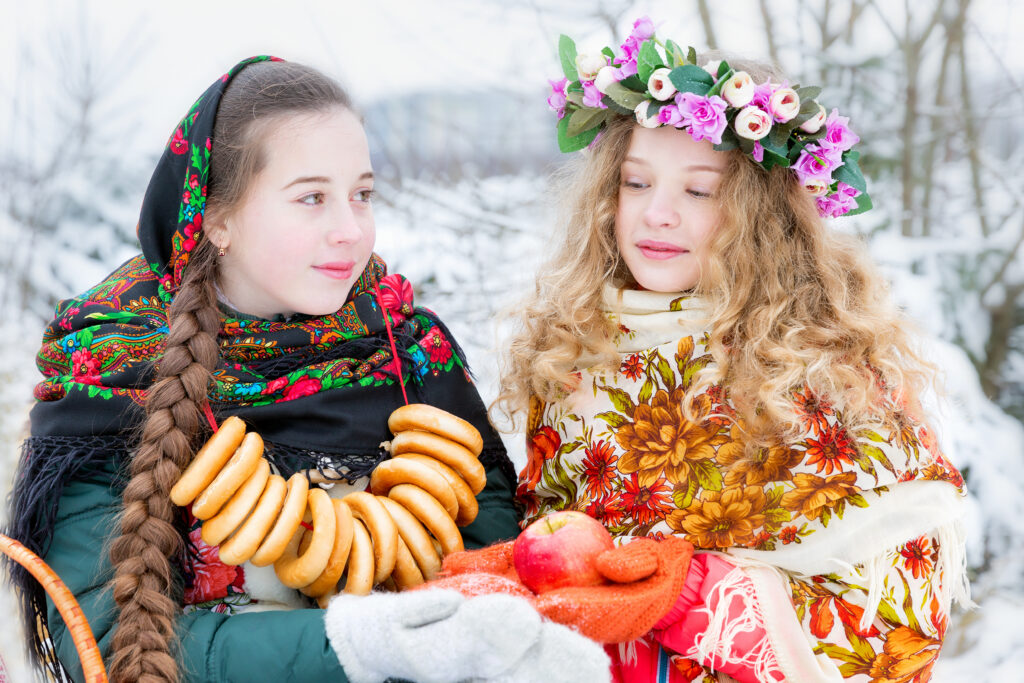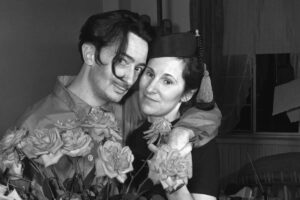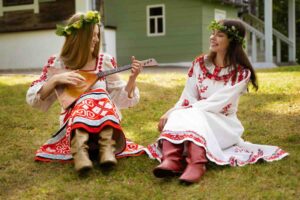"Not everyone knows the full version of this proverb. And in general, the modern generation associates Maslenitsa with something folkloric. Interspersed with eating pancakes and burning effigies. Despite its nationality, cheese week, as this holiday is also called, is closely connected with religious traditions. And even people far from Christianity know that after the fun and pancake feast, there comes a period of preparation for Easter. This is what the saying we mentioned at the very beginning says. Let's look at where this holiday came from and how it has influenced Russian culture.
History of Pancake Day
Like many ancient holidays, Pancake Day has such a deep history that there is no reliable data on how it originated. One thing that is known is that even before Christianity came to Russia, there were pagan rituals of seeing off winter. Traditionally, it was connected with land works. After all, from the weather conditions in the new season depended on the harvest and prosperity of the people. Therefore, to placate the pagan gods, the ancient Slavs celebrated the arrival of the spring sun.
The celebration was originally held on March 22 - during the spring solstice. Curiously enough. winter solstice was also important in pagan times. And just like Pancake Day, Christianity later tied it to its holidays. According to one version, pre-Christian Maslenitsa was called Komoeditsa. Researchers suggest that "kom" was the name of a bear that woke up after winter hibernation. And the first pancakes (symbols of the sun) were intended for him.
With the advent of Christianity in Russia in the 10-11th centuries, the celebration of the coming of spring continued. After all, people received food from the earth and continued to believe that pagan gods helped them in this. Two faiths - Christian and pagan - for a long time coexisted in the same territory. Over time, the pagan holiday was transformed into a church holiday, which began to be celebrated a week before Lent. Gradually, traditional rituals for Pancake Day were established, which have survived to our contemporaries.

What is usually done on Shrovetide
It is interesting that, despite the acquisition of religious meaning, the symbols of Pancake Day have remained from pagan times. The main ones are baking pancakes with various fillings, burning a straw effigy on the last day of the week, and folk festivities.
Why pancakes? As you know, the round shape of pancakes resembles the sun. Pagan tribes thus paid tribute to the spring sun - Yaril, and baked pancakes to make it gain strength sooner. In addition, pancakes had a connection with the world of the dead. Not without reason it was believed that the first pancakes baked at the beginning of the week should be given to the ancestors.
Interestingly, pancakes could be eaten all week long in unlimited quantities. Usually different fillings were added to them - sour cream, butter, cheese, cottage cheese. But meat was not allowed to eat during this week. That is why Pancake Day is also called "meat fasting" - a week without meat.
During the whole week there were folk festivities - people were not yet busy with agricultural work. Therefore, young people spent their time actively playing street games - sliding down hills, snowball fights and fist fights. Tug-of-war and sack fighting were also popular among the extant amusements. And one of the most unusual amusements was the so-called ice pole. Nowadays it has been replaced by an ordinary log. A pole was placed in the center of the site and water was poured on the frost. The pole would freeze, and on its top were tied prizes for the most agile. You had to climb up the pole and get your prize.
The most spectacular and mass ritual was the burning of a straw effigy - the image of winter. Until the 20th century, the scarecrow was not associated with humans, so, although it had a human appearance, it was made without a face. In our time, the scarecrow has more symbolic meaning, so it is often made in the form of a beautiful dressed woman. By the way, depending on the region, there were peculiarities. In some areas, they simply arranged bonfires without scarecrowslike Ivan Kupal.
The meaning of each day of Shrovetide
During Shrovetide week, each day had its own meaning and name. And each of them had its own traditions.
Thus, on Monday, which was called "meeting", it was customary to welcome spring. On this day, they started baking pancakes. The first pancake was "given" to the spirits of ancestors - it was taken to the cemetery or hung on the window.
On Tuesday - "Zaigryshch" - single young people were looking for a couple to get married at the end of Lent.
Wednesday was called "dainty day". On this day, the son-in-law came to visit his wife's parents ("to his mother-in-law for pancakes") to accept their treats.
Thursday was the beginning of Shrovetide. This day was called "rasgulay", and the folk festivities, which we have already mentioned, began.
On Friday, the mother-in-law came for a return visit to her daughter and son-in-law for pancakes. This day was called "mother-in-law's evening".
Saturday was the day of guests from the husband's side. The daughter-in-law invited her husband's sisters (sisters-in-law) and his parents to her house. This day was called "sister-in-law's sitting".
On Sunday it was customary to ask forgiveness from each other for offenses and bad thoughts. It was called "Forgiveness Sunday". It was the final day of the week, when the festivities were over and the effigy of winter was burned.


How Pancake Day is celebrated in other countries
Although Maslenitsa is considered an original Russian holiday, other countries also have their own holidays dedicated to the pagan meeting of spring.
For example, in Bulgaria, Greece, Czech Republic, Poland, there are their own holidays of the coming of spring. And they are celebrated strictly before the onset of Lent. However, the traditions of celebration are slightly different - in Greece, for example, during this period, meat is eaten. And in Poland and the Czech Republic, the holiday is celebrated on the Thursday before Lent. It is called "Fat Thursday".
In French-speaking European countries, Spring Day is celebrated on Tuesday, which is also called "fat Tuesday". The main rule is to eat a lot and have fun.
In Italy and Spain, spring is traditionally welcomed with lavish carnivals. And in the USA and Canada there is a special holiday - Groundhog Day. We wrote about it this article.
Pancake Day in Russian culture
The importance of Shrovetide for the Russian people is evidenced by the many traces it has left in art and literature.
In the literature:
- "The Snow Maiden" A.N.Ostrovsky - described the celebration of Shrovetide at the very beginning of the tale;
- "Eugene Onegin" A.S.Pushkin - in the poem there is a passage devoted to folk festivities on Shrovetide;
- "Clean Monday" I. Bunin - the action of the story takes place on Shrovetide week;
- "Merry Shrovetide" M. Zoshchenko - describes the celebration of Shrovetide in the first years after the revolution.
In painting:
"Shrovetide" B.M.Kustodiev (1916)
"Pancake skating" B.M.Kustodiev (1916)
"Shrovetide" by F.V.Sychkov (1914).
In music:
- Tchaikovsky "Shrovetide" (cycle "Seasons")
- I.F.Stravinsky "Petrushka" (the ballet takes place during Pancake Day)
- N.A.Rimsky-Korsakov "Farewell, Shrovetide" (opera "The Snow Maiden")
Preserving folk traditions is very important for passing on the values of the people, their culture and history to new generations. In addition, common holidays unite people and educate them in a common cultural code. And this is important for the preservation of the national spirit.
You can try a Russian lesson at Palme School online school for free. Leave a request in the form below and our manager will contact you.







